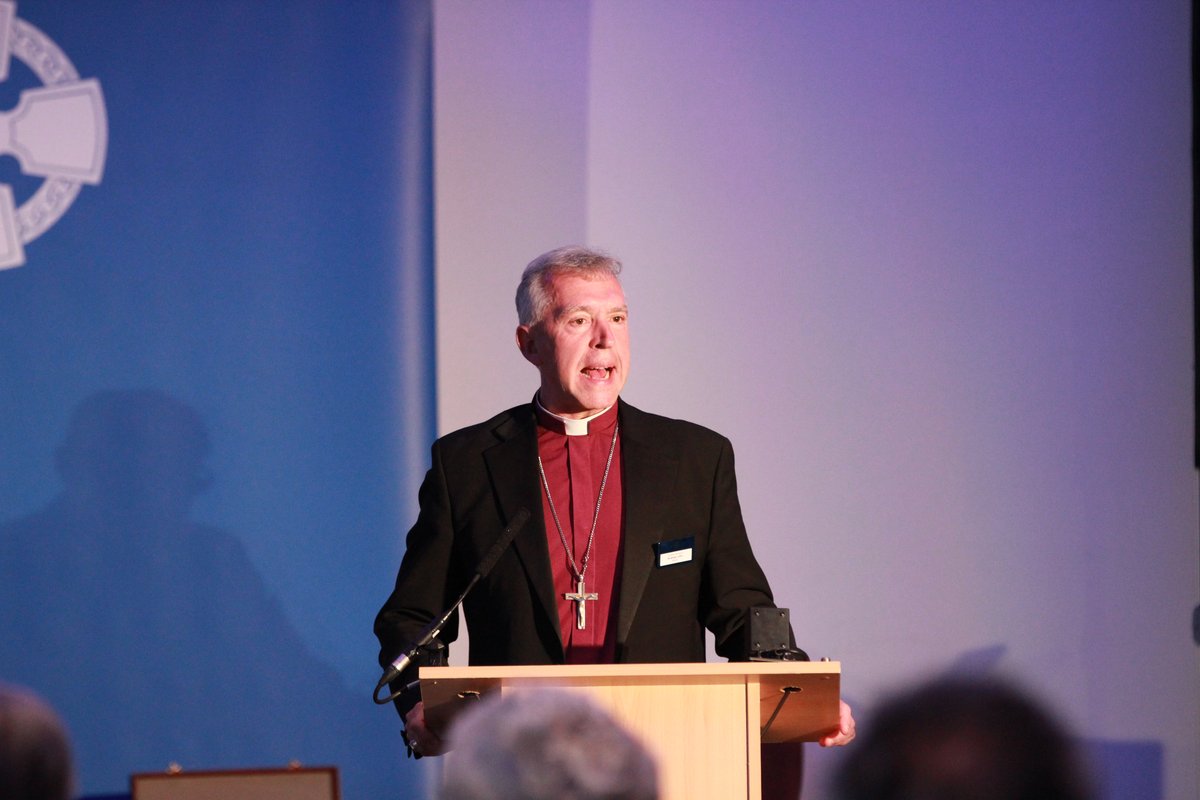Archbishop calls for Russian Church to condemn Ukraine war

The Archbishop of Wales called for the Russian Orthodox Church to condemn the war in Ukraine in a keynote speech today (April 27).
Archbishop Andrew John said Russia’s unprovoked attack was “deplorable” and backed calls for the Russian church to condemn the killing of civilians, press for an immediate ceasefire and demand an end to the war.
Addressing members of the Church’s Governing Body at the start of its two-day meeting today, Archbishop Andrew said, “When the church does not practice peace-making, when it does not defend the poor, when it fails to speak out against injustice, it has no right to say anything about the gospel of our Lord Jesus Christ. It forfeits that privilege and departs from its calling. We need to hear this message ourselves as well as say it to sisters and brothers elsewhere.”
The Archbishop said we lived in “challenging times” and this included on-going recovery from the Covid pandemic. He warned that the impact of the pandemic was yet to be fully realised. He said, “It is true that we have seen the ending of many restrictions; we do not yet see an absence of infections. And for those who lost loved ones, talk of ‘post pandemic’ can be heard as an invitation to a commence a journey onwards for which they are not yet ready. They have yet to come to terms with their losses. Quite what the corporate and national effect of the pandemic will be is not yet clear.”
The past few years had revealed how much faith mattered to people, said Archbishop Andrew, and he praised church communities for their rapid and swift response to the pandemic. The church, he said, had “rediscovered its voice”.
He said, “Faith matters – matters a great deal. In the context of huge uncertainty, many found their faith in Christ to be a constant source of support and joy. And when buildings could be both opened and accessed, it has been interesting to see the numbers registering their presence and often writing prayers….
“I think we also discovered that belonging was valuable and whilst we had sometimes thought of ourselves as a huge ship on the oceans (stable but not manoeuvrable), we discovered we were lighter on our feet than we had supposed. Online services become the norm very quickly. What was most significant was the number who shared. Why? Because belonging matters and our fellowship as Christians is deeply important. I also believe we saw examples of a church rediscovering our voice. The church was not the only body to respond with loving service. But we were there too – caring, conducting life-event services in sometimes very restricted circumstances, offering our buildings for use as vaccination centres, helping government in writing guidance for faith communities. When we demonstrate, in practical ways, our love for the world, we show the love of God for all creation.
“I think we should take genuine pleasure and joy in the way we responded. We did not walk from the challenges, we moved towards them, embraced them and responded.”

Future focus
Looking forward, Archbishop Andrew said there were more challenges for the Church, and he outlined bold and ambitious proposals for the next decade in order to meet them.
“Our focus is the Church in Wales in 2032 – the Church we wish to bequeath to our grandchildren and their children,” he said.
The priorities would be discipleship and evangelism and there would be “new and substantial” investment from central funds, delivered in a way to enable diocese to budget ahead with greater security.
“In relation to evangelism, we have been blessed by the projects established in the dioceses which have shown us we can do ‘church’ differently. We have seen imagination and creativity that has genuinely broken new ground. With smaller pioneer churches emerging we have discovered a way of telling the joyful story of Christ’s love to a lost generation.”
There would also be investment in support and training for Mission and Ministry Areas, said Archbishop Andrew.
“New investment in training, especially in St Padarn’s Institute, helps us embody the changes with which we are already working but it also amounts to a significant intervention designed to equip a 21st Century church with 21st Century skills so the ancient Catholic faith beats within us with new energy.”
Archbishop Andrew acknowledged the challenge posed by church buildings, including reducing their carbon footprint, and called for a strategy which “aims to manage the buildings we have, investing in those we need and finding good purposes for those we do not”.
The bishops were also exploring ways of working more together for the whole church, rather than for their own diocese. Current structures were being examined to see if they were enabling ambitious goals to be realised.
“Vision which has no place to land either dissipates into the ether or worse, crashes and causes more harm than good. No-one is interested in moving chairs on the deck.”
The Archbishop concluded, “The Church in Wales has demonstrated it can respond to the biggest of challenges, that it remains passionate about its message and Saviour and that courage – turning brave hopes into concrete acts - is within our reach. If we do this, we will discover afresh what it means to be the Church. The Church in Wales.”
Read Archbishop Andrew's Presidential Address
The Governing Body is meeting on April 27-28 at the International Convention Centre Wales.